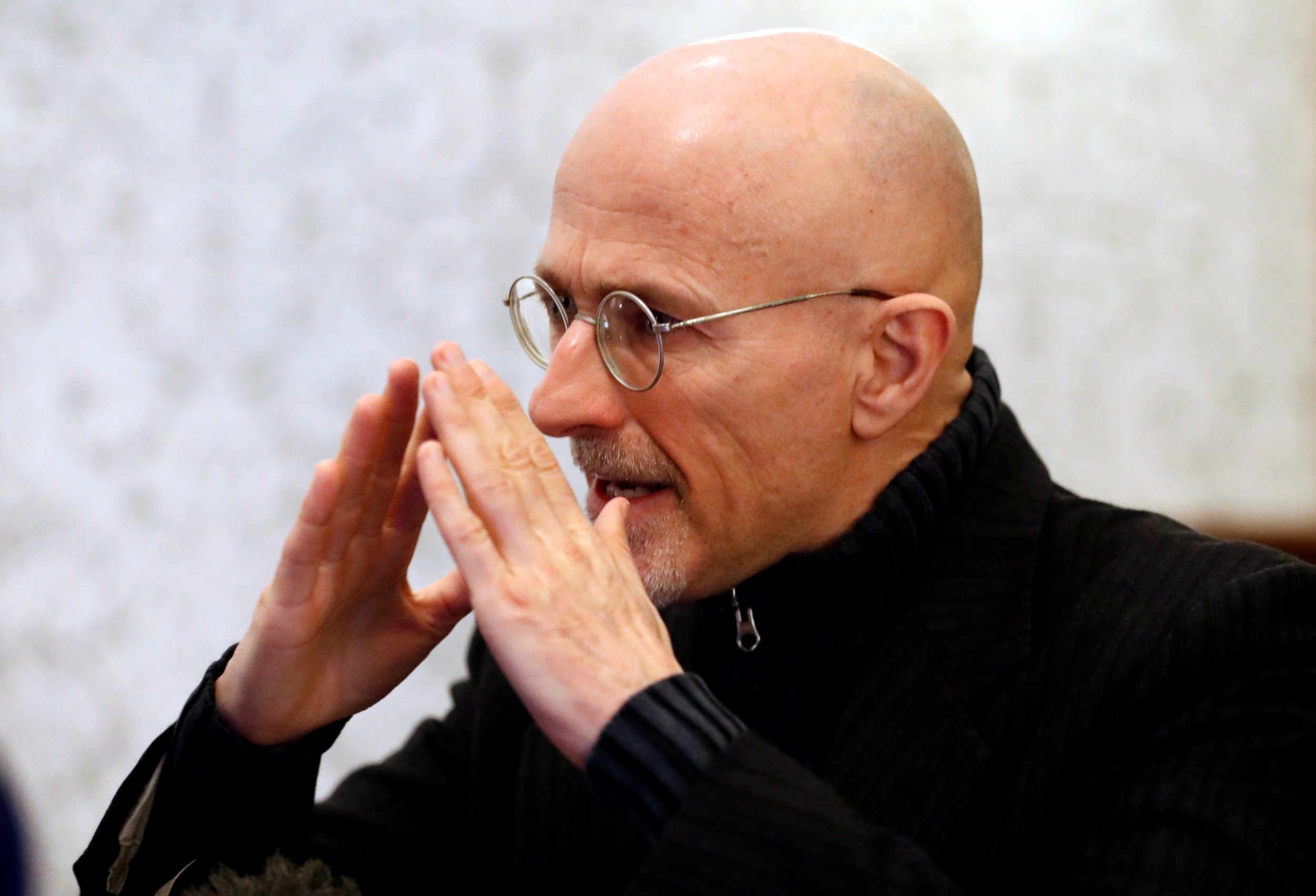
Two years ago, Italian neurosurgeon Sergio Canavero announced he would be performing the world's first human head transplant in December 2017. As that date approaches, two experts weigh in on the wider ethics of the operation: Why China? Why now?
Whether or not we believe head transplants will "work" or whether or not we want them to happen, the fact is the technology to perform them is being developed in China right now.
We have been disappointed by the initial responses from experts weighing in on the matter. So far the general response has been either to mock the character of Sergio Canavero, the neurosurgeon proposing the operations, or ignore the subject in the hope it goes away. But we think these opinions and the reporting on this procedure has missed two critical questions: Why China? Why now?
Canavero's laboratory was initially based in Italy, but his research was made impossible there, so he sought other locations and funding for the human head transplant project. He found a home for the project in China, where he is now joined by Xiaoping Ren, from Harbin Medical University.
Technological advancement is a major driver for economic vitality. Investment in neuroscience is not just about health, it's about commerce.
It is our suspicion that the authorities in China supporting this procedure are doing so wagering that a successful transplant will demonstrate to the world the dazzling level of technological achievement in the country. Perhaps it will. At a minimum, this procedure reveals that Chinese authorities believe there is no cost too high for raising China's profile on the world stage.
But it also reveals something else that we think is important: cultural values determine what kinds of scientific research happens and where it happens.
What is death?
In the U.S., the Uniform Determination of Death Act states that an individual who sustains irreversible cessation of all functions of their entire brain, including their brainstem, is dead. But China has no brain death standard, although one is being developed.
We must therefore ask: Where are they going to get the bodies for the head transplant procedures?
An internationally recognized practice for ensuring ethical (and legal) research with human participants is acquiring what is called "informed consent." Every single research project with human subjects done in every university or institution requires that the people who agree to be part of a study agree to participate without being coerced to do so and have the capacity and information to decide. No credible peer reviewed journal will publish a manuscript from a research team that has not obtained informed consent from its participants.

As it stands now, we see two ethical problems. The Chinese research team taking up Canavero's human head transplants could use bodies or heads from individuals who have not consented to participate. And it could be the case that the procedure would involve bodies or heads from individuals who would not be considered legally dead by Western standards
One tricky aspect is that informed consent and research that requires human subjects do not typically apply to cadavers or the deceased; the assumption being that being pronounced "dead" is not a reversible state.
Who is this for?
A third concern is conceptual but tremendously important: How is a "self" determined?
"Who I am" in the Western sense is an autonomous individual, the possessor of a unique essence that has rights that cannot be ethically violated. But in the Confucian context, "who I am" is an accomplishment resulting from my performance of my obligations to my family and community. Rather than enshrining the sanctity of rugged individualism, in the Confucian context ones individuality is the result of relationships and community.
We suspect that Canavero's procedure would not appeal to the vast number of people living in China because the predominant philosophical and spiritual traditions there would not favor organ donation—let alone brain donation—or any dismantling of the body. Quite simply, ones organs and body belong to ones parents and they are not an individual's alone to donate.

Consider the high number of organs available for donation from China despite the small number of registered organ donors. China continues to be one of the largest suppliers of organs for transplants and has yet to be accepted as an ethical partner in the global organ transplantation community.
It seems unlikely that there is a significant demand for human head transplants in China, so who is this technology being developed for? The consumers will likely be a small market of ultra-wealthy individuals who might deem the procedure as desirable because they live in a consumer culture that insists that aging is something inherently bad.
We in the U.S. live within a consumer culture that produces age-correcting products and we have a medical system that treats human suffering like we do a car: it just needs the right technician to fix the problem.
We wonder if Canavero's human head transplant signals that China is ready to play the role of venture capitalist for a new "disruptive technology"—one that offers a technical fix to our unresolved fears of death. Can there be a better industry to disrupt than that of the business of dying? The irony is not lost on us that the procedure is called HEAVEN.
Karen S. Rommelfanger is a neuroethicist, assistant professor of neurology and psychiatry and behavioral sciences at Emory University School of Medicine, and the Director of the Neuroethics Program at the Emory Center for Ethics. Paul F. Boshears is scholar of East Asian and comparative philosophy and limited term assistant professor in the Department of History and Philosophy at Kennesaw State University.
The authors also provided an editorial for a forthcoming special issue on the ethics of head transplants for the American Journal of Bioethics Neuroscience, the official journal of the International Neuroethics Society. The issue features an ethics debate with Sergio Canavero, Xiaoping Ren, Paul Root Wolpe and more.
Uncommon Knowledge
Newsweek is committed to challenging conventional wisdom and finding connections in the search for common ground.
Newsweek is committed to challenging conventional wisdom and finding connections in the search for common ground.
About the writer
To read how Newsweek uses AI as a newsroom tool, Click here.








